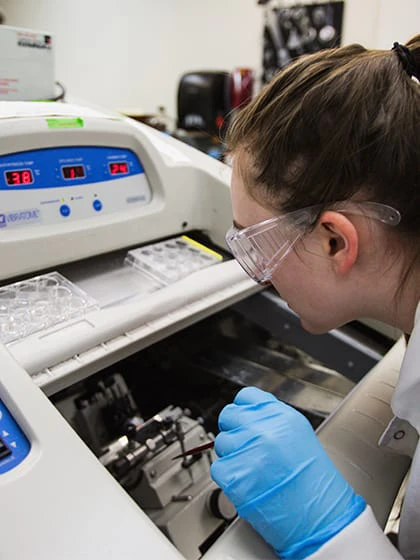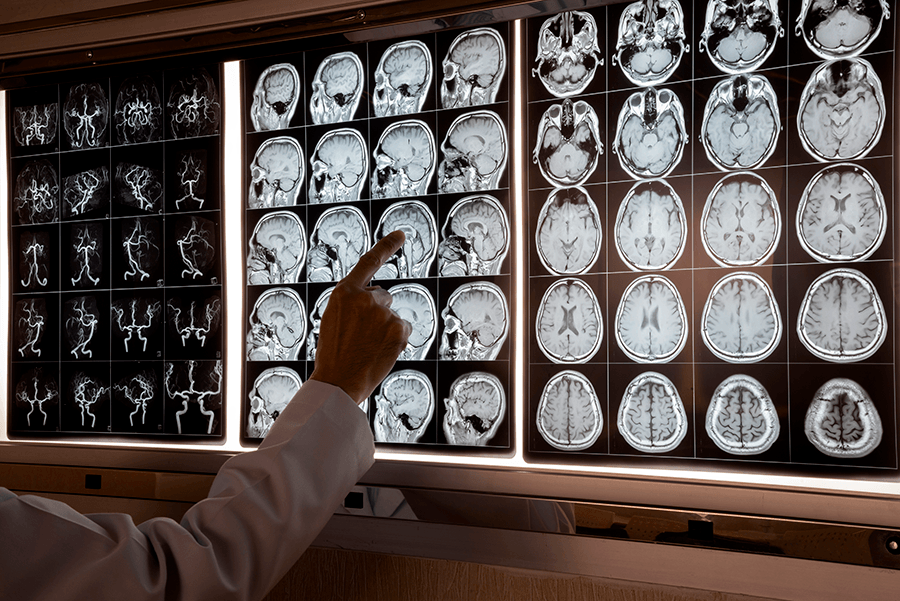


Neuroscience: Cell and Molecular
Major
Molecular and cellular neuroscience degree at CMU
How do brain cells communicate? A molecular and cellular neuroscience degree helps you decode the nervous system at its most fundamental level. You'll study how neurons communicate, how diseases affect brain function and how molecular research is shaping new treatments. With hands-on experience and research opportunities, you’ll graduate prepared for careers in biomedical research, laboratory science and clinical health professions—or to continue your studies in graduate or medical school.
AT A GLANCE
Why our molecular and cellular neuroscience major?
At CMU, you’ll join a research-driven community of passionate students and dedicated faculty mentors, working side by side to explore the complexities of the brain. You’ll dive deep into neurobiology, genetics, and molecular pathways to understand how nervous system disorders develop—and how to treat them.
With hands-on experience in cellular and molecular biology, neuropharmacology and biochemistry, you’ll develop the expertise to:
- Investigate the biological mechanisms behind neural function, behavior and disease.
- Conduct research on neurodegenerative disorders, brain injuries and cellular communication.
- Apply molecular biology and biochemistry techniques to study nervous system function.
- Develop skills in data analysis, imaging and experimental design.
What will you learn while majoring in molecular and cellular neuroscience?
As a molecular and cellular neuroscience student, you can:
- Engage in advanced research: Work closely with faculty studying topics such as neurobiology, genetics and drug development.
- Join a community of scientists: Connect with the Neuroscience Society and collaborate with peers on research projects.
- Present your findings: Share your research at regional, national and international neuroscience conferences.
- Prepare for competitive careers: Build a strong foundation for graduate school, medical school or industry roles.
Interested in taking your studies further? We offer an accelerated Neuroscience graduate program with advanced coursework and research to excel in your field.
Careers for a molecular and cellular neuroscience major
CMU graduates with a molecular and cellular neuroscience degree go on to work in research laboratories, healthcare settings and biotech companies. Many continue their education in neuroscience Ph.D. programs or attend medical school.
| Career | Projected Salary |
|---|---|
| Clinical Laboratory Technician | $57,800 |
| Research Scientist | $74,342 |
| Biological Technician | $53,560 |

/neuroscience-goldfeature-900x600.png?sfvrsn=98b75b36_1)
Connect with the neuroscience community
Beyond the classroom, you’ll have opportunities to engage with neuroscience student organizations that support your academic and professional growth. The Central Neuroscience Society brings together students from diverse backgrounds to explore current research, collaborate across disciplines and promote neuroscience within the university and community. Through guest lectures, discussions and research initiatives, you’ll connect with peers and faculty while expanding your understanding of the field.
Request Information about CMU
By submitting this form, I agree to receive calls, emails and/or text messages from Central Michigan University to discuss furthering my education.